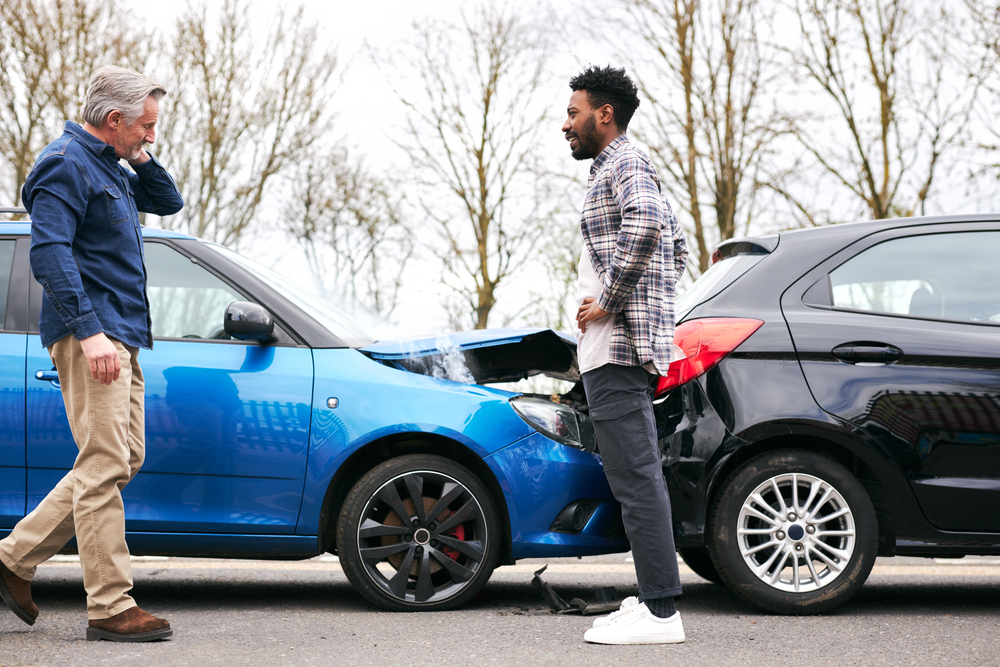Free Consultation
(314) 500-HURT100+ years of combined experience and over $200 million won for our clients in Missouri and Illinois. Contact a personal injury lawyer near you.
Free Consultation
(314) 500-HURTOne of the things we do in litigation and in working a case up to trial is depositions, and I have a number of videos
that I use for my clients to prepare for depositions, but just a little bit on depositions. There’s a rule of civil
procedure that affords the parties to take depositions. You can take depositions of the opposing party, the plaintiff or
defendant, their relatives or friends that have relevant evidence about the case. You can take depositions of witnesses.
You can take depositions of outside companies that either have records or information important to your case. You can
take depositions of experts. Sometimes we hire experts on liability to prove how or why a defendant was negligent.
Last week I did a deposition. I’ve produced an accident reconstruction. It’s in a truck crash case, and he talked about
what he saw about the speeds and the forces involved and the errors done by the truck driver. You can take depositions
of medical doctors where they come in and say, “I treated this client. They have these injuries. They were caused by
this car crash or this slip and fall, and here’s what my diagnosis is, my prognosis. Here’s their past medical, here’s
their future medical,” and then we go into detail sometimes with diagrams and other things to try to show the jury, take
to the jury, convey to the jury the types of injuries that our client sustained.
Sometimes you have depositions of experts about economic damages or other types of things. Other kinds of cases can have
other kinds of experts, but that’s what the types of depositions you’re taking. Definitely when depositions occur, they
go question, answer, question, answer, where the lawyer asks the question and the deponent answers the question. The
lawyer waits till the deponent’s done with their answer, and the deponent gives or the witness gives the lawyer the same
courtesy, and you basically go through questions to try to elicit evidence that is relevant at trial.
If you go too far a field or you’re not courteous to the witness, that can draw objections from the other side. They may
object that you’re asking irrelevant questions or you’ve already asked it once. There are a whole host of objections.
The same type of objections you would make at trial, you can make at a deposition to preserve your record, and all this
is taken down by a court reporter who takes down the questions and the answer. And those depositions can go on for some
time. The more experience you have with cases usually, the shorter your depositions are. I tried to hone in on the
issues I need to inquire about and focus on that and not waste anybody’s time, and I certainly want to honor the time of
the witness and the other lawyers as well.
And, you also want to… You can use documents. Witnesses can be shown documents and ask to interpret documents at
depositions, and a witness usually wants to prepare for the deposition and think of deposition, think about the
questions that are going to be asked, work with their lawyer to prepare, to get focused on the types of questions and
what appropriate answers are to get the accurate information, know what documents are going to be looked at during the
case and not be surprised, and that witnesses don’t have to guess, but you can also often ask for the best guess of the
witness. You may not know exactly how many feet between you and the truck when you first saw it come through the red
light, but you can also give your best estimate of that as well.
Sometimes lawyers try to be too pushy, too aggressive in depositions. They think they can influence answers. That’s
inappropriate. Sometimes the defense lawyer thinks by objecting, they’re trying to answer the question for their
witness. That’s an effective tactic; that’s equally inappropriate as well.
Those are just some of the things about deposition. There are entire courses taught about those, but I wanted to do a
short video on depositions just to orient folks on that. So, I’m Gary Burger. If you have any more questions about that,
I’m at 314-542-2222. Thank you.
Founder | Injury Attorney
Gary Burger has dedicated his career to standing up against bullies. The founder and principal attorney of Burger Law | St. Louis Personal Injury Lawyer has helped hundreds of Missouri and Illinois individuals and families recover th …
Years of experience: 30 years
Location: St. Louis, MO

Similar Blog Posts

Rear-end collisions are one of the most frequent types of car accidents in St. Louis and across the country, often resulting in property damage, personal injuries, and financial ha... read more.

You know, we can talk all day about how we're awesome lawyers, but at the end of the day, it's just words. And those words tend to mean more when they come from our clients. Which... read more.

Vicki Wilkins | Car Accident Case Lawner Gary Burger speaks with a client, Vicki Wilkins. Vicki was injured in a car accident when two other drivers were racing on the road aroun... read more.

This page has been written, edited, and reviewed by a team of legal writers following our comprehensive editorial guidelines. This page was approved by Founding Partner, Gary Burger who has more than 30 years of legal experience as a practicing personal injury trial attorney. Gary’s robust legal knowledge is recognized by his peers as demonstrated by his industry awards and frequent Continuing Legal Education (CLE) lectures.
NO FEES UNTIL WE WIN YOUR CASE
We offer free consultations and are available 24/7 to take your call. Live chat, text, and virtual meetings are available.
or call us at